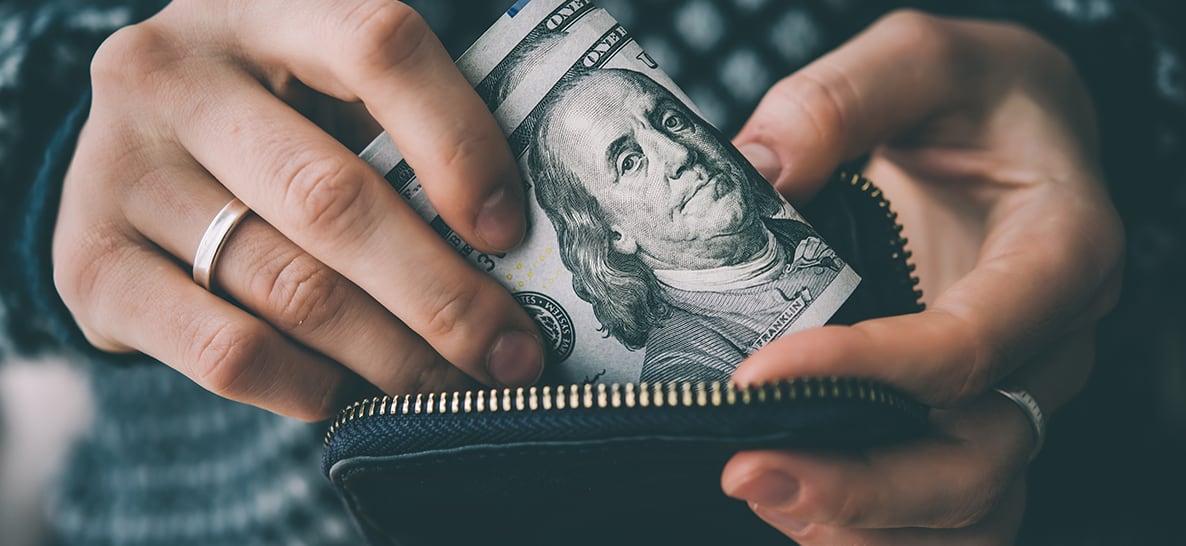
You haven’t “made it” yet. You don’t command a hefty salary or carry a sizable bank balance. No silver spoons have ever landed in your mouth. Congratulations!
You’re in the right place to learn how to give generously.
Believe it or not, the best time to learn generosity is when we have less, not more. Why? When we have more, we also have more to lose—and so we often cling to it tightly, fearful it might escape our grasp. Too often, we also tell ourselves we’ve earned our bounty or that we’re reaping the rewards of our own hard work and savvy money management. These attitudes keep us from practicing generosity.
Yet when the next paycheck is the only way we’ll make this month’s rent or keep the lights on, we see it as a godsend. Because it is. We whisper prayers of gratitude, we acknowledge God’s guiding hand, and we recall that all we have is a gift. We are grateful, and gratitude is the birthplace of generosity.
This dynamic explains why U.S. tax returns year after year show that top earners report a lower percentage of charitable giving than those at the bottom. Clearly, generosity is not solely for the rich.
Even for the people in the more generous lower tax brackets, the biblical benchmark of giving ten percent of income is a stretch. Three to four percent is more common. Many of us want to give more. In fact, we long to live more generously, but we find ourselves stuck.
How do we move the dial on our giving, especially when cash appears scarce? Here’s how:
Take an inventory.
Begin by assessing what you have. Your money, of course, is easy to measure—but money is only one small part of what you have. List your skills, your personality traits, your blocks of free time. Do you have a broad network? A social media platform? While money may be the most obvious resource, odds are you possess a wealth of non-monetary resources. Do you make a mean breakfast? Then help with cook meals at a senior home. Are you a compassionate listener? Mentor a teen in your area.
A former member of my church liked competing in triathlons. She was a high school math teacher, and the physical activity helped her stay sane and energized in the classroom. New teachers in Chicago earn $50,000 per year, but given the high cost of living in the city, that salary translates into just getting by. She donated regularly to the church and to other organizations, but she wanted to give more.
Her solution? A year of running. She picked one race and one charity each month, and asked her network of friends, family, and co-workers to donate a small amount per mile. By the end of the year, she had given away thousands of dollars to meaningful causes. And in turn, she felt the sheer joy of knowing that because of her efforts, students received scholarships, homeless folks were fed, and hundreds of lives changed for the better.
Generosity begins with what you have and where you are. When my church received a $1.6 million windfall from a decades-old $1,000 real estate investment, we remembered the miracle of the loaves and fishes. As told in the gospel of Mark, a crowd of 5,000 is gathered after having listened to Jesus preach.
It’s evening and the disciples worry the crowd is getting hungry, so they ask Jesus to tell everyone to disperse to local villages for food. In a moment that surely bewildered the disciples, Jesus replies, “Go and see how many loaves you have.” They return with a meager five loaves and two fish, which become enough for Jesus. He blesses the food and the crowd eats its fill.
When you take an inventory, you are counting your loaves and fish. The only thing left to do is to offer them to God—and trust he will turn them into a miracle.
Start small.
Jesus compares the kingdom of heaven to a mustard seed: a speck that then matures into a glorious twenty-foot tree. Giving works the same way. A small amount each day swells and expands, reaching higher and farther than we anticipate.
What is your mustard seed opportunity to give? A helpful exercise for many people at my church has been to review their spending from the prior month. With electronic records now available 24/7 via banking websites and apps, you can access this snapshot of your financial life with only a few clicks.
A woman in one of our stewardship classes treated herself to a dinner at a moderately-priced restaurant every couple of weeks. After reviewing her receipts, she realized that she usually ordered a glass of wine, which she enjoyed but didn’t feel she needed. Because she sought to increase her giving, she decided to forego the wine; she took the money she would have spent on a glass at the restaurant and instead put it into a glass jar at home. Within a few months, she had accumulated a hundred dollars, along with the newfound freedom to give it away.
Conventional wisdom asserts that new habits are formed in three weeks. What new giving habit could you form in the next three weeks? Perhaps you can pack rather than buy lunch an extra day each week. Or volunteer a few hours. Or greet everyone you meet on the elevator with a smile and a hello. Just pick something, and let it be the mustard seed that allows generosity to take root.
Here’s the real secret to generosity, even when you’re strapped: giving begets giving. Once you start giving, you’ll want to keep giving, and to give more. That’s what people at my church discovered when the first ten percent of the surprise $1.6 million windfall was distributed to each of them. Everyone received a $500 check with the instruction to do God’s work with it.
As people gave away the money, they ended up giving more—their time, their skills, their connections, their love. They felt the unbridled joy of giving and sought out new ways to give, just as you will. In committing three weeks to small steps of giving, you will begin to wear a posture of generosity. It’s a posture everyone wears well, no matter how rich or poor.






















